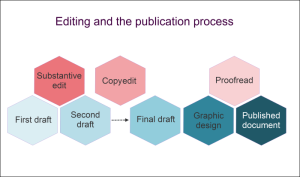
Embark on a journey into the realm of business management tools in 2025, where innovation and technology converge to shape the future landscape of efficiency and productivity.
Explore the evolution of current tools, the impact of AI and blockchain, and the potential changes in employment dynamics brought forth by these advancements.
Business Management Tools 2025
In the fast-paced world of business, management tools play a crucial role in helping organizations streamline their operations, make data-driven decisions, and stay competitive. As we look ahead to 2025, the evolution of these tools is expected to be driven by advanced technologies like AI and blockchain, revolutionizing the way businesses are managed.
Evolution of Business Management Tools
In 2025, business management tools are anticipated to be more intuitive, customizable, and interconnected than ever before. With the integration of AI, these tools will be able to analyze vast amounts of data in real-time, providing actionable insights to managers. Additionally, blockchain technology is expected to enhance security and transparency in transactions, ensuring trust among stakeholders.
Comparison of Current and Anticipated Tools
Current business management tools often require manual data entry and lack real-time analytics capabilities. In contrast, the tools of 2025 are projected to automate repetitive tasks, offer predictive analytics, and facilitate seamless collaboration among team members. The shift towards cloud-based solutions will also enable remote access and scalability for businesses of all sizes.
Impact of Advanced Technologies
The integration of AI and blockchain in business management tools will have a profound impact on decision-making processes. AI algorithms can analyze data patterns to predict market trends, while blockchain ensures the integrity of transactions and contracts. This combination of technologies will not only increase efficiency but also reduce the risk of errors and fraud in business operations.
Employment and Work
The evolution of business management tools in 2025 is poised to revolutionize the nature of work as we know it. With advancements in technology reshaping industries across the board, the way we work is set to undergo significant changes.Automation and artificial intelligence (AI) are set to play a crucial role in reshaping employment dynamics. As businesses integrate more AI-driven processes and automation tools, routine tasks will be streamlined, allowing employees to focus on more strategic and creative aspects of their work.
This shift will lead to a higher demand for skills related to managing and optimizing these new technologies, creating new job opportunities in the process.Remote work trends are also expected to influence the development of business management tools in 2025. With more employees working remotely than ever before, tools that facilitate communication, collaboration, and project management across distributed teams will become increasingly important.
Business management tools will need to adapt to support the unique challenges and opportunities presented by remote work, such as ensuring data security and fostering team cohesion in virtual settings.
Role of Automation and Artificial Intelligence
Automation and artificial intelligence (AI) are set to transform the world of work in 2025 and beyond. Here are some ways in which these technologies are reshaping employment dynamics:
- Automation will streamline routine tasks, allowing employees to focus on higher-value work.
- AI-powered tools can analyze data and provide insights, enabling more informed decision-making.
- Machine learning algorithms can optimize processes and improve efficiency in various business operations.
Remote Work Trends
The rise of remote work is influencing the development of business management tools in
2025. Here are some ways in which this trend is shaping the tools used in modern workplaces
- Collaboration tools that support virtual team communication and project management are becoming essential.
- Security features to protect sensitive data in remote work environments are a top priority for businesses.
- Tools that promote employee engagement and well-being in remote settings are gaining importance.
Business Management in Publishing and Printing

The publishing and printing industry faces unique challenges when it comes to managing businesses. From dealing with changing consumer preferences to navigating the shift towards digital content, there are several factors that impact the way companies in this sector operate.
Challenges Faced by the Publishing and Printing Industry
- Adapting to the digital age: With the rise of e-books and online publications, traditional publishers and printers must find ways to stay relevant in a digital world.
- Managing inventory and production costs: Balancing the need for physical copies with the cost of printing and storing inventory can be a delicate dance for businesses in this sector.
- Keeping up with technological advancements: From digital printing techniques to online marketing strategies, companies in publishing and printing must constantly evolve to remain competitive.
Digital Transformation and Business Management
In the era of digital transformation, the publishing and printing industry is no exception to the changes brought about by technology. Companies are now leveraging digital tools and platforms to streamline their operations, reach wider audiences, and improve overall efficiency.
- Automation of processes: Digital transformation has enabled publishing and printing companies to automate repetitive tasks, leading to increased productivity and reduced errors.
- Enhanced customer engagement: Through digital platforms, businesses can now engage with their audience in new and innovative ways, fostering stronger relationships and brand loyalty.
- Data-driven decision-making: With the help of data analytics, companies can gain valuable insights into consumer behavior, market trends, and operational performance, allowing for more informed business decisions.
Role of Data Analytics and Cloud Computing
Data analytics and cloud computing play a crucial role in optimizing business operations in the publishing and printing sector. By harnessing the power of data and cloud-based technologies, companies can improve efficiency, reduce costs, and enhance overall competitiveness.
- Optimizing production processes: Data analytics can help companies identify bottlenecks in production and distribution, allowing for more streamlined operations and faster time-to-market.
- Personalizing content and marketing: By analyzing customer data, businesses can tailor their content and marketing strategies to better meet the needs and preferences of their target audience, leading to higher engagement and conversion rates.
- Ensuring data security and scalability: Cloud computing provides publishing and printing companies with a secure and scalable infrastructure for storing and managing large volumes of data, ensuring business continuity and compliance with regulatory requirements.
Telecommunications

Effective business management tools play a crucial role in the success of telecommunications companies. These tools help in streamlining operations, enhancing customer service, and maximizing efficiency in a highly competitive industry.
Importance of 5G Technology and IoT Devices
The emergence of 5G technology and the widespread adoption of IoT devices are revolutionizing the telecommunications sector. 5G technology offers lightning-fast connectivity, low latency, and high data capacity, enabling telecom companies to deliver seamless communication services to their customers. IoT devices, on the other hand, are expanding the network of interconnected devices, creating new opportunities for data collection and analysis.
- 5G technology allows telecom companies to offer innovative services such as augmented reality, virtual reality, and connected vehicles.
- IOT devices enable telecom companies to gather real-time data on network performance, customer behavior, and market trends, leading to better decision-making and customized services.
- The combination of 5G technology and IoT devices is reshaping the business landscape for telecom companies, opening up new revenue streams and improving operational efficiency.
Role of Cybersecurity Measures
Cybersecurity measures are essential for ensuring the smooth functioning of telecom companies. With the increasing volume of data being transmitted over networks, telecom companies are prime targets for cyber attacks. Implementing robust cybersecurity measures is crucial for safeguarding sensitive information, protecting customer privacy, and maintaining the integrity of communication networks.
- Encryption technologies help in securing data transmissions and preventing unauthorized access to confidential information.
- Firewalls and intrusion detection systems are deployed to monitor network traffic and detect any suspicious activity that could indicate a potential security breach.
- Ongoing training and awareness programs educate employees about cybersecurity best practices and help in creating a culture of security within the organization.
Epilogue
As we conclude our exploration, envision a world where business management tools in 2025 redefine the way we work, collaborate, and thrive in an era of digital transformation.
Top FAQs
How will AI influence business management tools in 2025?
AI is expected to enhance decision-making processes, automate tasks, and optimize operations, revolutionizing the efficiency and effectiveness of these tools.
What role will blockchain play in shaping business management tools by 2025?
Blockchain technology will provide enhanced security, transparency, and traceability in data management, transforming how businesses handle transactions and information.
How might remote work trends impact the development of business management tools in 2025?
The rise of remote work will drive the need for tools that facilitate seamless collaboration, communication, and task management across distributed teams, leading to innovative solutions in the field.
Why are cybersecurity measures crucial for telecommunications companies in managing business operations?
Cybersecurity is essential to safeguard sensitive data, prevent cyber threats, and ensure uninterrupted business continuity in the face of evolving technological landscapes.





